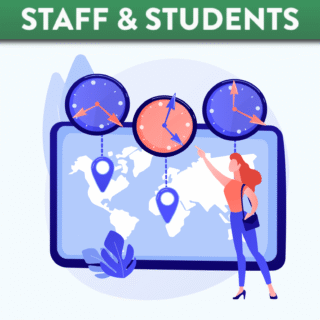
Implications of AI for Education
Overview
In the short term, AI has the potential to revolutionise education in many ways. One of the most significant benefits is the personalisation of learning experiences. By utilising AI-powered adaptive learning platforms, students can receive tailored lessons that address their specific strengths and weaknesses, leading to increased engagement and understanding. Furthermore, virtual assistants and chatbots driven by AI can provide instant academic support to students, assisting with coursework and answering questions, which can help alleviate the burden on educators. Automated grading systems can also help with the assessment process, freeing up more time for teachers to focus on teaching. However, it’s important to be mindful of potential challenges, such as the need for robust data privacy measures and ensuring that AI technology supplements, rather than replaces, the essential role of educators in fostering critical thinking and creativity in students.
Purpose and Delivery of Education
Artificial intelligence (AI) is poised to change the skills landscape in the workforce. In the short term, industries will increasingly seek professionals with expertise in AI-related skills, such as machine learning, data analysis, and automation management. Additionally, there will be an emphasis on nurturing soft skills such as critical thinking, adaptability, and emotional intelligence, as these skills are not easily replicated by AI and are essential for effective collaboration with AI systems. This change in skills demand will require agile educational systems that can quickly adapt curricula to meet the changing needs of the job market.
The implications for education content and delivery are significant. Institutions will need to incorporate AI and emerging technologies into their curricula to ensure that students are well-equipped for the changing workforce. This may involve the creation of interdisciplinary programs that combine traditional subjects with AI and automation knowledge. Furthermore, educators will increasingly use AI-driven tools for content creation, assessment, and personalised learning experiences, enabling greater efficiency and customisation. However, there will be a need for a comprehensive re-evaluation of how education is delivered, with a focus on online and hybrid learning models to accommodate the demand for flexible, lifelong learning opportunities.
The wider Further Education (FE) and Higher Education (HE) sectors will experience a series of profound implications as AI continues to advance. Colleges and universities will need to invest in faculty development to ensure that educators are AI-literate and can effectively integrate technology into their teaching methods. Additionally, institutions must address issues of accessibility, equity, and ethics related to AI in education. As AI-driven learning platforms become more prevalent, there may be a shift in the education landscape, with a rise in online and alternative education providers. This competition could lead to a re-evaluation of traditional higher education models and the need for institutions to differentiate themselves through innovative programs and student support services. Ultimately, the FE/HE sector will need to navigate a complex terrain of technology adoption, workforce readiness, and student expectations to remain relevant in an AI-driven world.

